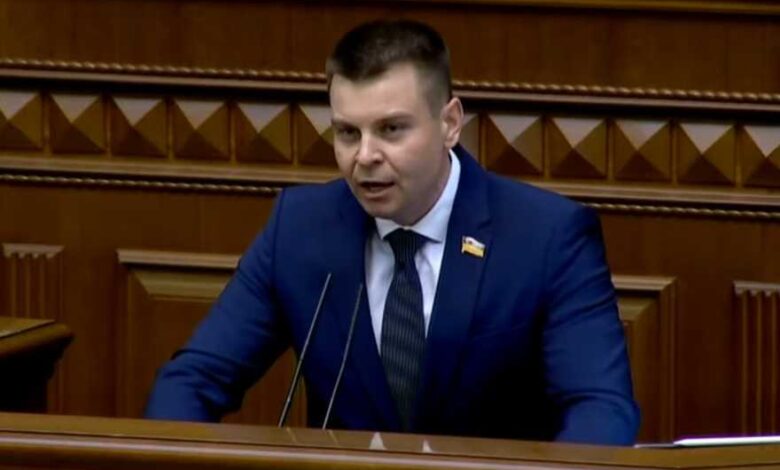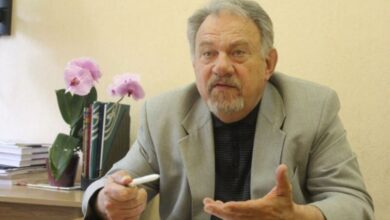The scandalous law on SAPO and NABU caused resistance from its author: Bakumov’s position and the statement of anti-corruption bodies

On July 22, 2025, the Verkhovna Rada of Ukraine adopted draft law No. 12414 as a whole, which regulates the activities of the National Anti-Corruption Bureau of Ukraine and the Specialized Anti-Corruption Prosecutor’s Office. 263 People’s Deputies voted for this document. The adoption of the law caused a wave of criticism from the expert environment and opposition political forces, as well as protest actions from civil society. Criticism and protest related to the fact that a number of provisions of the draft law radically change the logic of the functioning of anti-corruption bodies, depriving them of their independence and subordinating their activities to the Prosecutor General.
Despite public protests and calls for a veto, President Volodymyr Zelenskyi signed this law on the same day, July 22. The relevant information appeared on the official website of the Verkhovna Rada in the card of the draft law, but it disappeared and returned several times during the day, which caused additional tension and suspicions about the transparency of the process.
Oleksandr Bakumov, Kharkiv majority deputy and member of the “Servant of the People” faction, was one of the co-authors draft law No. 12414, which at the time of its first reading in the Verkhovna Rada was intended to settle issues related to missing persons. However, before the second reading, the document underwent radical changes that significantly distorted its original essence. That is why Bakumov publicly stated, who abstained from voting and was actually forced to refuse to support his own draft law. He explained his position in detail, drawing attention to the violation of parliamentary procedures, ignoring the author’s contribution and the radical shift of emphasis in the document towards regulating the powers of NABU and SAP, which was not the case in the initial version.
Bakumov notes that in the first reading, draft law No. 12414 referred to something completely different — it referred to persons who have disappeared and provided for the possibility of filing a missing person’s application by their relatives at their place of residence or registration. The goal was to ensure that the pre-trial investigation body was not somewhere in the frontline region or community, but precisely where a loved one is located who has experienced grief and wants to determine the fate of the missing person. He emphasizes that this was the purpose of the draft law — to enable relatives to act more effectively in such circumstances.
The People’s Deputy believes that by the second reading, the draft law has turned into a completely different document with a completely different content load. As the deputy emphasizes, amendments numbered 12, 13, 14 and 15 have absolutely nothing to do with the subject of legal regulation, which was laid down in the first reading. The changes that appeared before the second reading completely distorted the original concept and added to the law provisions on the status and powers of NABU and SAP.
Bakumov emphasizes that a meeting of the specialized committee of the Verkhovna Rada took place in the morning of July 22, at which these changes were considered, but he was not invited to this meeting as a co-author of the project. He did not know about this meeting and found out after the fact. This is the first time in six years of working in the parliament that he missed a committee meeting not because of illness or other good reason, but because he was simply not notified. Despite the difficult circumstances in the past, he always participated in the meetings of the Council and committees, but this time he was not given such an opportunity.
The deputy believes that the committee was convened at the request of the majority, they chose their chairman, since Ionushas was on a business trip, and he and the first deputy chairman of the committee were also absent. As a result, changes were adopted without his participation, after which the bill was put to a vote in the hall.
He notes that he does not idealize the work of NABU and SAP. Law enforcement has its positives and negatives, there are questions about efficiency and powers, but he believes that parliamentary procedures should be respected. According to him, it is no longer only about the content of the amendments, but about the very essence of democracy and the right of a people’s deputy to participate in the formation of the law, to express his position on the amendments and to vote for them – that is, to exercise the representative mandate. He emphasizes that he was deprived of this right.
Bakumov emphasizes that this is why he abstained from voting during the plenary session. He could not press “against” because the basis of the project was his own initiatives on missing persons, which, he said, remain important. At the same time, he could not support the document either, because he did not agree with what the committee proposed in terms of changes to NABU and SAP. He declares that he decided not to participate in the vote, because neither conscience nor morality allowed him to express a specific position, since he did not understand what was happening. The situation was opaque, because the changes took up 46 pages, three of them – 12 pages each, and it was impossible to understand this amount of changes without a preliminary analysis.
He notes that he is very ashamed that this happened to his document. It was unpleasant to realize that his draft law became a platform for the implementation of completely different goals, unrelated to his idea. Bakumov concludes that he was thus forced to abandon his own draft law.
In addition, the National Anti-Corruption Bureau of Ukraine and the Specialized Anti-Corruption Prosecutor’s Office publicly criticized the adopted document is still at the stage of its preparation for the second reading. The joint statement noted that last-minute amendments were made to the final version, which significantly change the functional model of the anti-corruption system. In particular, the new version of the law stipulates that the Prosecutor General is authorized to access all NABU materials, as well as the right to grant such access to other prosecutors. The Prosecutor General is given the opportunity to issue mandatory written instructions to NABU detectives. In case of their non-fulfilment, change the responsibility and transfer the case to other law enforcement agencies.
According to the adopted provisions, the Prosecutor General also gets the right to single-handedly terminate the investigation based on the appeal of the defense party, to independently resolve disputes about liability, to sign suspicions to high-ranking officials without the participation of the SAP, as well as to form a prosecutorial group without the mandatory inclusion of the head of the Specialized Anti-Corruption Prosecutor’s Office. Thus, the head of the SAP loses the opportunity to be a member of investigative teams, and the entire NABU vertical actually comes under the control of the Prosecutor General’s Office.
In their statement, NABU and SAP emphasized that the implementation of these changes will lead to the destruction of the independence of the anti-corruption system, which was built in Ukraine since 2015 in accordance with obligations to international partners and within the framework of reforms that were supposed to strengthen institutional control over corruption. They urged people’s deputies not to vote for the draft law in this version, stressing that its adoption would endanger the further existence of an effective and independent anti-corruption infrastructure in the state.





